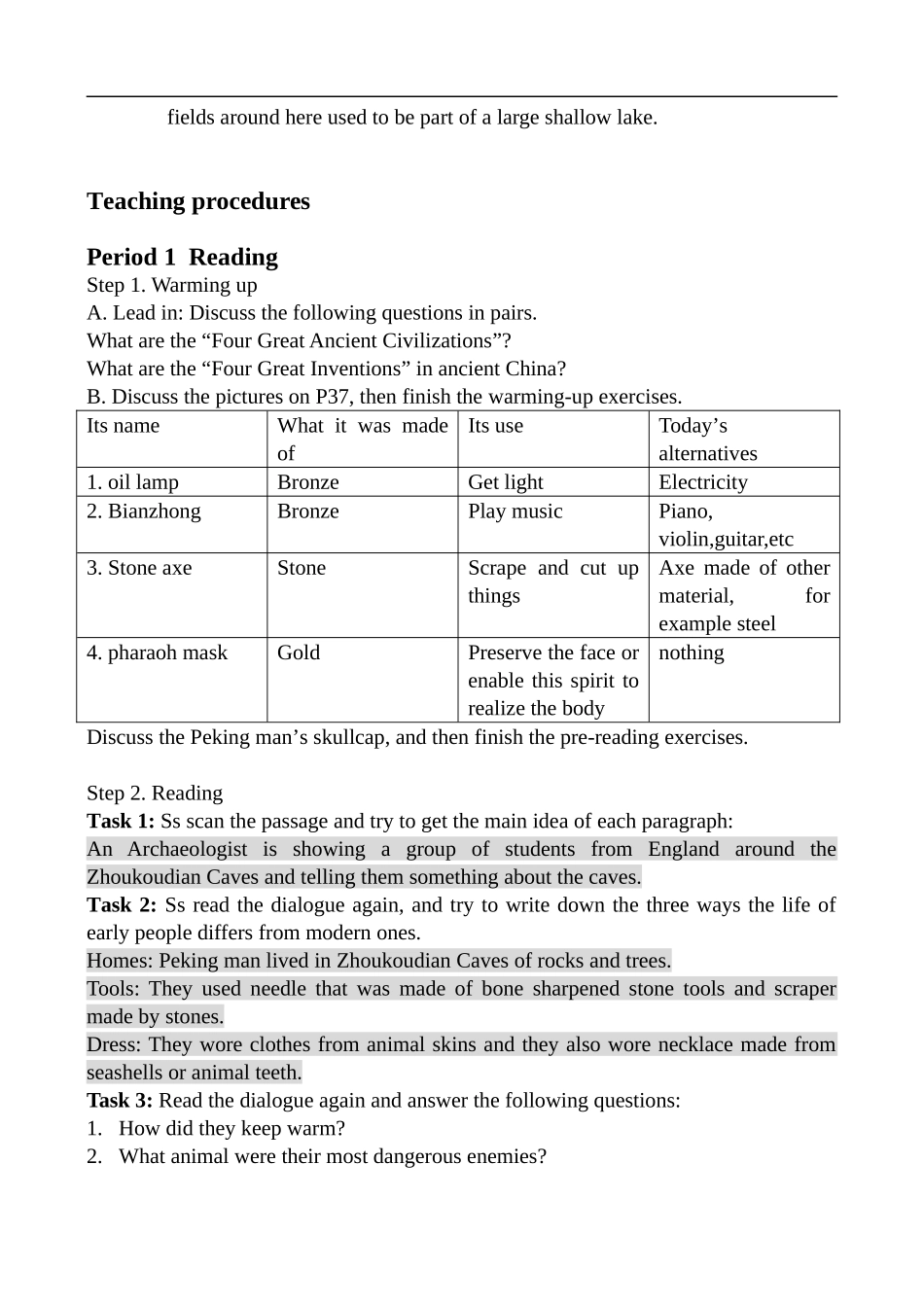高中英语 Unit 5 Meeting Your Ancestors 人教版第八册Teaching aims:1. Topic Talking about archaeological evidence and knowledge2. Useful words and expressions:Identify, alternative, tentative, accuracy, excavate, interrupt, assume, regardless, sharpen, scrape, ample, primitive, preserve, specific, significance, applaud, accelerate, arrest, dizzy, affection, patient, eyebrow, cheekbone, arrowhead, axe, division, affectionate, skillful. Expressions: regardless of, cut up, look ahead, be similar to, show sb. around, be fed up with.3. Functional items:giving opinions and describing objects I think that we should… because… I suggest we… If…, then maybe we ought to… Perhaps we should/could… We must ask for help from… What if…? It seems likely/ unlikely that… It looks like… It could be… because… How large do you think it is? Is there any… on the…? It may/ might have been used as/for… 4. Grammar Revise the present perfect continuous tenseHAS/ HAVE + BEEN+ V-ing1. We have been finding the bones of tigers and bears in the caves and we think these were their most dangerous enemies.2. We have been excavating layers of ash almost six meters thick, which suggests that they might have kept the fire burning all winter.3. Yes, indeed, as the botanical analyses have been specially showing us, all the fields around here used to be part of a large shallow lake.Teaching proceduresPeriod 1 ReadingStep 1. Warming upA. Lead in: Discuss the following questions in pairs.What are the “Four Great Ancient Civilizations”?What are the “Four Great Inventions” in ancient China?B. Discuss the pictures on P37, then finish the warming-up exercises.Its nameWhat it was made ofIts useToday’s alternatives1. oil lampBronzeGet lightElec...


